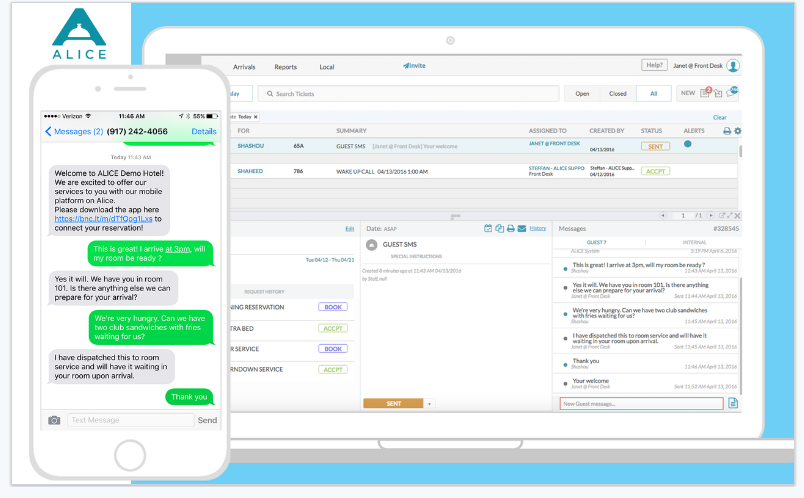
The Do’s and Dont’s of Texting, from a New York City Concierge
A few tech-savvy hotels are skipping email and social media and are directly texting their guests. Noah Lemaich, the head concierge at Sixty LES, has been perfecting the proper tone to strike with guests—one that’s not too creepy or too informal.
A few tech-savvy hotels are skipping email and social media and are directly texting their guests. Arrive Hotels which just opened in Palm Springs has done away with telephones in the guest room and instead asks guests to text the hotel for whatever they might need. Sixty LES is also embracing texting as a method of communicating with guests. Even bigger brands like Marriott and Four Seasons are texting guests, albeit through their mobile apps.

While millennials who have pretty much grown up with smartphones may not be fazed by a text message sent from a hotel concierge, older guests might be, simply put, weirded out by an invasive message from a random on their phone.
Noah Lemaich, the head concierge at Sixty LES, has been perfecting the proper tone to strike with guests—one that’s not too creepy or too informal. Here are some of the ways his hotel is keeping their concierge texting game on point.
DO
Adapt your hotel’s standard operating procedures to the medium. Texting is a short, casual, rapid-response medium. For example, greeting a guest via text should be different than a formal in-person greeting. Yet be sure not to be too casual when texting a guest. (See below.)
Reply quickly. Guests shouldn’t be left to feel like they could have gotten a quicker answer by calling the front desk. Sixty LES uses a software program called ALICE, a guest SMS solution (and cross-department request management platform for staff) that allows us to change, adapt, and customize how we are alerted. If we are not on the ALICE screen, we can get a pop-up message, an email alert, a text, even someone from ALICE personally giving us a call if we miss a guest’s text.
Have your answers ready. Guests want quick answers to simple questions. Thankfully, ALICE allows hotels to select from prepared responses to frequently asked questions such as “What is the code for WiFi?”, “How late is room service open?”, and “Where is the closest coffee shop?” This allows the hotel to reply even faster than we can type. ALICE also allows hotels to build text templates for questions that are not directly related to a guest’s question, such as a quick check-in text to see how their stay is going so far.
Make it clear that guests can you text you the same way they would text anyone in their contact list. Often times, guests will ask how the texting process works. That’s your turn to say, “It’s just like texting a friend for a recommendation.”
DON’T
Assume which guests are comfortable with texting. Texting should be conveyed as a one of the many ways to communicate with the hotel. At Sixty LES we were surprised when people who were tech-savvy enough to book the hotel via a mobile app chose to text us rather than download our hotel app, and that the guests who we thought would not embrace an SMS solution, were soon texting us with room service order requests.
Become a spam bot. Don’t cross that line from easy chat tool to annoying advertising platform.
Forget to train and monitor your staff. The beauty of texting is that it has become so natural and intuitive in our day-to-day life. But be careful not to let your team get too casual. Make it clear that a “We’re on it!” might be acceptable, but a “Whatcha need?” is not.
Wait until the guests are in-house. We’ve certainly had guests who wished they had been told about our SMS number prior to check-in. Perhaps it would be that much easier for you guests to arrange that surprise bottle of bubbly, without having to make up some reason to step away and make a call.







